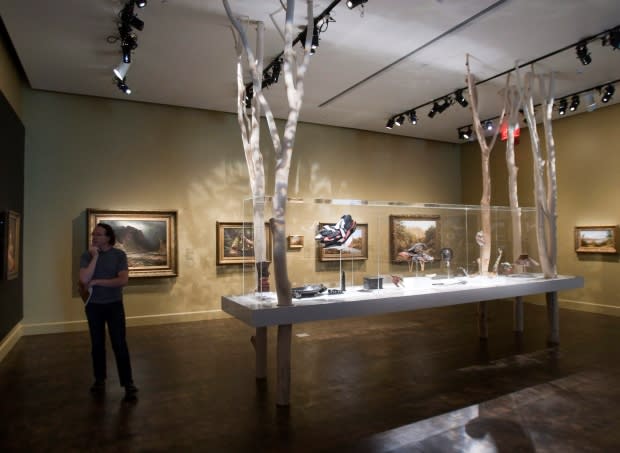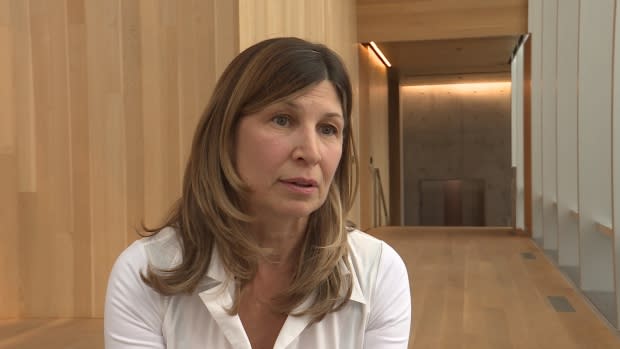Doctors to prescribe a visit to the museum to help patients 'escape from their own pain'
A group of Canadian physicians will be writing a new kind of prescription starting next month — a trip to the museum.
The Montreal Museum of Fine Arts and a Montreal-based doctors' association are launching a pilot project Nov. 1 to treat patients to a day of paintings, sculpture and relaxation.
One of the doctors behind the initiative says a trip to the museum can benefit those with all kinds of conditions — from mental illness and eating disorders to diabetes, high blood pressure and for those in palliative care.
"It's so rare in medicine that you prescribe something and you do not need to worry about all those side effects or interactions with other medication," said Dr. Hélène Boyer, vice-president of Médecins francophones du Canada.
Releases hormones, distracts from chronic pain
Nathalie Bondil, the museum's director-general and chief curator, made her pitch to the association at their annual meeting. The physicians were intrigued by the idea.
"We know that art stimulates neural activity," said Bondil, whose museum already employs an art therapist full-time to hold creative workshops for those suffering from chronic illness.
"What we see is that the fact that you are in contact with culture, with art, can really help your well-being."

Doctors who are members of the association will be able to prescribe a free trip to the museum to patients.
The prescription is good for two adults and two children under the age of 17.
Taking in the art with loved ones is key to the treatment, said Bondil.

Boyer admits they're treading on uncharted ground, but that the simple act of getting out and focusing on something else than their condition can work wonders on a patient's outlook.
It can cause a release of hormones, she said, that is otherwise difficult to attain for those suffering from chronic pain who have trouble maintaining regular physical activity.
'Modern cathedral'
The museum visits complement, not supplement, more traditional treatment.
"What is most important is to have this experience which is to help them escape from their own pain," said Bondil.
"When you enter the museum, you escape from the speed of our daily life. It's a kind of modern cathedral."
While only doctors who are part of the association can participate in the pilot project, Boyer encourages anglophone physicians to join so that they can also take part.
She hopes that physicians seize this opportunity for a different kind of treatment, and that patients are open to the idea.
Boyer said she's looking forward to prescribing a trip to the museum to her patients, and seeing how they respond.
Doctors will follow up with patients to see if there are any changes in their conditions, and after the project runs for one year, they will prepare a report with their cumulative findings.
With files from Sean Henry

